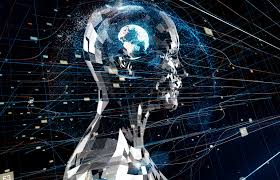by Eesha Javadekar
DO FOLLOW: US eyes expanding Chinese tech ban to quantum computing and AI
According to persons with knowledge of the matter, the Biden administration is considering additional export limits that would limit China’s access to some of the most powerful developing computer technology.
The early-stage prospective ideas are centered on the still-experimental realm of quantum computing and artificial intelligence (AI) software, according to individuals who requested anonymity to disclose private thoughts. They said that industry experts are weighing in on how to establish the boundaries for this emerging technology.
If enacted, these measures would follow earlier this month’s announcement of other limits intended at limiting Beijing’s ability to use cutting-edge semiconductors in weapons and surveillance systems.
The United States has intensified its efforts to impede China’s capacity to develop crucial technology in its struggle with its chief strategic adversary. The expansive measures published earlier this month also restricted the participation of US nationals and residents in Chinese technology enterprises.
In a speech he gave last month on technology, competitiveness, and national security, National Security Advisor Jake Sullivan cited “computing-related technologies, including microelectronics, quantum information systems, and artificial intelligence” as developments that “will play an outsized role over the next decade.” He also emphasised the need of export limits in order to “keep as great a lead as feasible” over competitors.
Expanding the wall around breakthrough technology runs the danger of further alienating China and pushing other nations to choose sides between the world’s two largest economies. People claim that the new ideas have been shared with US allies.
Strong potential

Quantum computing is an experimental area that has the potential to significantly enhance the computing power and speed, allowing machines to tackle problems that are beyond the capabilities of the present generation of computers.
Quantum machines might be strong enough to decipher passwords and defeat encryption security measures, which is anticipated to one day upend computer security systems.
People say that officials are still considering how to structure the controls on quantum computing, which will likely concentrate on the output level and the so-called error correction rate.
Microsoft, Alphabet’s Google, Intel, and International Business Machines are investing millions of dollars on quantum-related research initiatives.
Unlike ordinary computers, which interpret data as “ones” and “zeroes,” a quantum machine may store information in several states – as a one, a zero, both, or something else – based on the “superposition” concept. This enables quantum systems to multitask in ways that binary technology cannot.
A typical computer searching for a name in a phone book organised by number might, for example, search one number at a time. A quantum computer could simultaneously scan all of them.
Existing quantum systems need unusual cooling technologies to create the ultra-cold temperatures necessary to control and detect the quantum states of subatomic particles. This is the greatest obstacle.
The Biden administration is also working on an executive order for an export investment review process that would examine money destined for certain Chinese technology, and quantum computing and artificial intelligence regulations might be included, according to one of the sources. This might include some similarities to a bill proposed by senators Bob Casey, a Democrat from Pennsylvania, and John Cornyn, a Republican from Texas.
READ MORE
- WHO: Smoking Can Cause Permanent Sight Loss
- Unstable Northern Atlantic Ocean Climate System: Little Ice Age Returns?













